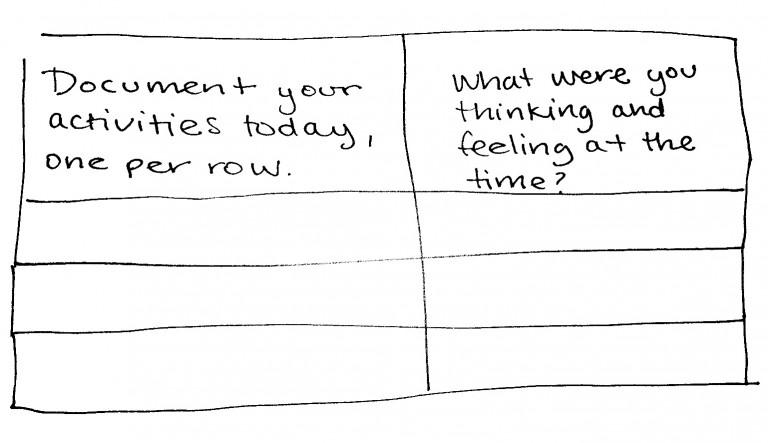Get the latest information about What’S The Difference Between A Journal And A Diary in this article, hopefully providing better understanding for you.

What’s the Difference Between a Journal and a Diary?
As a writer, I’ve kept both journals and diaries throughout my life. While both have been valuable tools for self-expression and reflection, I’ve noticed key differences between the two.
In this blog post, we’ll delve into the distinctions between journals and diaries, exploring their definitions, history, and usage. We’ll also discuss the latest trends and developments in journaling and diary-keeping, and provide tips and expert advice to help you get the most out of your own writing practice.
Journal or Diary: Finding Your Perfect Fit
Journals and diaries are both written records of personal experiences, thoughts, and feelings. However, there are subtle differences in their purpose, structure, and intended audience.
A journal is typically used for recording objective observations, data, or research findings. It can be used to track daily activities, document events, or explore specific topics in depth. Journals are often written in a formal or academic style and may include charts, graphs, or other visual aids.
The Diary: A Window into Your Inner World
A diary, on the other hand, is a more personal and reflective writing form. It is used to record subjective experiences, emotions, and introspections. Diaries may be written in a variety of styles, from stream-of-consciousness entries to more structured narratives.
Unlike journals, which are often intended for a specific purpose or audience, diaries are typically written for the author’s own eyes. They can be a valuable tool for self-discovery, emotional processing, and personal growth. While some people may choose to share their diaries with others, they are ultimately a private space for self-expression.
Historical Perspectives on Journals and Diaries
The history of journaling and diary-keeping dates back centuries. Some of the earliest known journals were written by ancient Greek philosophers and scientists, who used them to record their observations and theories. Diaries, on the other hand, have been popular since the Middle Ages, when they were used by people from all walks of life to记录 their daily lives and experiences.
Today, journals and diaries continue to be popular writing forms. They are used by people of all ages and backgrounds to document their lives, explore their thoughts and feelings, and achieve personal growth.
Current Trends in Journaling and Diary-Keeping
In recent years, there has been a growing interest in journaling and diary-keeping as tools for self-care, mental health, and personal development. This trend has been fueled by the rise of social media and the increasing focus on mindfulness and well-being.
There are now many different types of journals and diaries available, from traditional bound notebooks to digital apps. Some people choose to use journals for specific purposes, such as goal-setting, gratitude journaling, or dream journaling. Others use diaries to record their daily experiences, process their emotions, or explore their creativity.
Tips for Getting Started with Journaling or Diary-Keeping
If you’re interested in starting a journal or diary, there are a few things you can do to get started:
- Choose a journal or diary that you find appealing and that fits your needs.
- Set aside a specific time each day to write in your journal or diary.
- Don’t worry about being perfect. Just write whatever comes to mind.
- Be honest with yourself and don’t be afraid to explore your thoughts and emotions.
- Use your journal or diary as a tool for self-discovery and personal growth.
Expert Advice on Journaling and Diary-Keeping
“Journaling is a powerful tool for self-discovery and personal growth. It can help you to understand your thoughts and feelings, identify patterns in your behavior, and set goals for the future.” – Dr. Susan David, psychologist and author of the book Emotional Agility
“Diary-keeping is a great way to process your emotions and reflect on your experiences. It can help you to learn from your mistakes, appreciate the good times, and find meaning in your life.” – Dr. Jessica Habb, psychologist and author of the book The Art of Resilience
Frequently Asked Questions About Journals and Diaries
Q: What is the difference between a journal and a diary?
A: Journals are typically used for recording objective observations, data, or research findings, while diaries are used to record subjective experiences, emotions, and introspections.
Q: What are the benefits of journaling and diary-keeping?
A: Journaling and diary-keeping can provide many benefits, including self-discovery, emotional processing, personal growth, and stress relief.
Q: How often should I write in my journal or diary?
A: There is no right or wrong answer to this question. Some people choose to write in their journals or diaries every day, while others write less frequently. The best approach is to find a schedule that works for you.
Q: Can I share my journal or diary with others?
A: Whether or not to share your journal or diary with others is a personal decision. Some people choose to share their journals or diaries with close friends or family members, while others prefer to keep them private.
Conclusion
Whether you choose to keep a journal or a diary, or both, these writing forms can be valuable tools for self-expression, reflection, and personal growth. By taking the time to write down your thoughts and experiences, you can gain a deeper understanding of yourself and your world.
Are you interested in journaling or diary-keeping? Share your thoughts and experiences in the comments below.

Image: juneux.com
Thank you for visiting our website and taking the time to read What’S The Difference Between A Journal And A Diary. We hope you find benefits from What’S The Difference Between A Journal And A Diary.